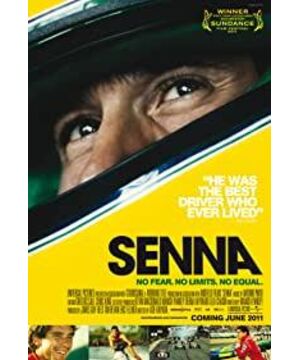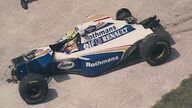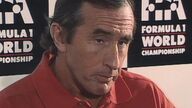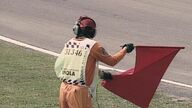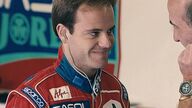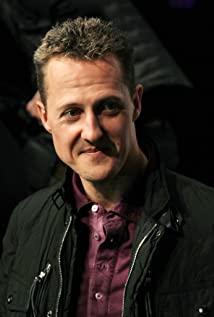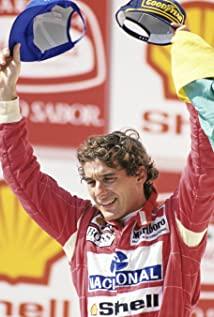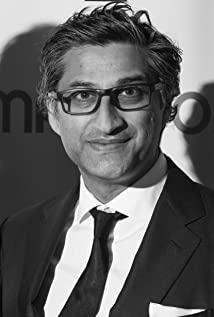This is the first New Year's Day spent outside the home, and the first New Year's Day that will be crossed alone. On a moonless night, I dug out the uncensored full version of "Forever Car God" that I downloaded 2 months ago on my computer, stared at the subtitles silently, and watched Ayrton's friends, family and old enemies change over time. In 2009 and 2010, I remembered the people of Siberia, sigh, but the 164-minute film is still too short, so short that people can't remember the bits and pieces in front of Ayrton, and it's too short to remind people of the Black Monday in 1994. What happened is too short to make people sigh, sigh, the soul of the car god has blessed all the new generation drivers on the track in the past 20 years. In the past 20 years, no one died on the track, only because one person left in a hurry within 6 seconds. world.
I haven't watched any live broadcast of Ayrton Senna. In 1994, he passed away. For 20 years, every May 1st in the motherland is immersed in the joy of Labor Day, but almost no one remembers the one in 1994. Black Monday, no one remembers the abolished Imola track, no one remembers the corner called "Tambrero." Since 2005, I have been exposed to F1 and Schumacher. Of course, I always hear two names from a group of people: Ayrton·Senna and Alain·Prost. The two are always put together and talked about. "What about Schumacher?" "Schumacher hadn't started his career yet," they explained to me. In 2005, CCTV5 also owned the broadcasting rights of F1, that is, since then, I have not even figured out the computer, and I started to search for all the videos and videos about Ayrton and Prost on the Internet. Remember that the narrators are Spanish, Japanese, and English speakers. The videos at that time had no subtitles, and the two English names that appeared most frequently on the screen became the very first English names I learned as a child—Ayrton·Senna and Alain·Prost.
"Forever Car God" won the Best Picture Award at the 2010 Sundance Film Festival and became the only documentary to win the Best Picture Award at all film festivals in the world. Some people say that this is old wine in a new bottle, changing the soup but not the medicine, and piecing together the videos used in many documentaries in the past to form such a mediocre reproduction of Senna's life. Many old car fans who have had more say than me and have witnessed the legendary life of Senna gave a negative answer to this kind of comment. In the full version of 164 minutes, the director and the film crew spent 4 years, visiting including Ron Dennis (the former general manager of McLaren, one of the people who experienced and witnessed all the grievances between Prost and Senna), Niki Lauda (one of the greatest F1 drivers of the last century, triple crown winner) and even Prost ( More than 20 people, including the famous French F1 driver, Senna's teammate, the quadruple champion) himself, and collected precious interview videos. The value of these precious and unique interview videos is enough to surpass all past documentaries and memoirs about Ayrton Senna. It has to be said that it is a genuine work of sincerity. The most crucial point is that "Forever Car God" changed the dull and long rhythm of the past documentaries, combined with Antonio Pinto's majestic soundtrack, so that the 164-minute film has no urine. The story is no longer a simple review of Senna's life, and the film is no longer a mere documentary, no longer a tribute to Senna. The film crew objectively reproduced and restored his legendary career, and further His personality and qualities are explored. A driver's story about speed, passion, competition and grit, ultimately boils down to one key word - the weakness of human nature.
Episode Ⅰ: Entryway
At the beginning of the film, the young Senna walks in step by step under the densely packed camera, and the voiceover is his characteristic broken English with a Portuguese accent: "In 1978, I came to Europe to represent Brazil at the Karting World Championships. Sai... "The title seems to be simple, but it actually forms a loop with the ending. This technique, which is common in literary works, has produced peculiar effects in the film, so let's not talk about it for the time being. The title was displayed, the feature film began, and in 164 minutes, his short seven-year career was compressed into less than three hours of film, and many well-known and excellent games were naturally unable to be fully presented. However, this film did not focus on reproducing his heroism and greatness on the field at all. Within 3 hours, we saw a familiar Senna with first-class driving skills, but also saw another person outside the field and in the eyes of others. Uncommon Senna.
The first year of Senna's career has been very smooth, from Toleman to Lotus, and from Lotus to McLaren, the triple jump is very smooth. "Senna Phenomenon", "King of Rain Fights", the title implies what kind of future the young Brazilian will have in the future, but it only implies strength and brilliance, but did not expect or mention that such a South American driver will be in the future. The possible setbacks include discrimination, exclusion, blackmail, intrigue on and off the field, and danger and death that he realizes only too late. Senna is a theist. He believes in the true God, and he believes that some supernatural power will give him unique strength and protection. Therefore, he has a kind of courage and self-confidence that ordinary people cannot understand. This is not reckless courage, but The power of wisdom. Rain battles, the nightmare of drivers in the last century, their retirement rate and accident probability are far beyond what they can be compared to now. The best drivers often reduce their speed to protect themselves, but Senna dares to take advantage of the fear of everyone during the rain battle. To widen the gap between himself and others, he can often maintain extremely high speed, maintain a vertical angle into the net when entering a corner, apply the brakes very late, and let the car body drift through the corner, the rear of the car is often only a few inches from the fence. distance.
This courage has allowed Senna to keep winning races, and it's like a godsend, he never had a major accident or injury, and this luck is not necessarily a good thing later, because in my opinion, it is Senna Good luck in his early years fueled his inner self-confidence and faith in the protection of the true God, and he grew faster and more eager to win, which was not a good thing. When people's desire to win is too extreme, it will inevitably lead to failure and even disaster in contrast to victory.
In the second year of Senna's entry into F1, he came to McLaren, which was in full swing at the time. McLaren had the "three best" of the time: the best manager (Ron Dennis), the best car (McLaren P180), the best driver (Alain Prost and Niki Lauda), the best More than 6 years on the field. As a rookie, a very fast rookie, "a very fast and not afraid of death" rookie, the arrival of Senna brought McLaren the hope of winning next year's championship, but also brought a new team to the team. worry. Two years later, Senna entered the Tao and embarked on the road of becoming a god.
Episode Ⅱ: During the fierce battle
in the 20th century, every F1 legend will be composed of two people. These two people are definitely enemies on the track and friends off the track. The two most famous opponents are the "Brave Drivers" Niki Lauda and his buddy James Hunt (remember last year's film "The Fastest Way"...). Talking about Senna's career, Alain Prost can't be avoided. In the 164-minute film, Prost appeared in the camera only 3 minutes less than Senna.
In this kind of confrontation combination, in addition to the strength of the two drivers, there are often huge differences in personalities and concepts, or even completely opposite. Under the blessing of his so-called God, Senna drives fiercely, changes lines quickly, and he dares to overtake no matter how small the gap is. In a word - "fast", he and Hunt can be said to be the same type of driver, fans. Give them a nickname - "passion flow". Passion is one of the essences of the sport of F1, and drivers with passion can often create miracles and win the love of fans. So what is another essence of F1? Undoubtedly, it is rational and extremely precise tactical formulation and execution. Prost, alias "Professor", is simply the embodiment of rationality. This person is not only proficient in all aspects of racing, but is also an uncompromising "tactical emperor". Because of "going through the back door" and "pulling relationships", and always criticized by car fans (even French domestic car fans). But no matter how much people hate drivers like Prost, they are indeed a special group in the entire F1 history, with first-class driving skills, and they use rational and precise calculations to assist themselves to win races, don't forget, Professor Pu is the quadruple champion, Senna Is the triple crown.
"Si Shengyu, He Shengliang", some people say that this is the most appropriate sentence to describe Senna and Professor Pu. The film inevitably uses a lot of space to describe the competition between the two on and off the field, because the battle between the two is inherently Occupying most of the pages of Senna's entire career, competition is an eternal theme among drivers, and sometimes it can even develop into a war without gunpowder. The two became friends at the beginning, became teammates, and then became enemies on the field. "Prost to Senna, Senna to Prost. These two people always take the poll position from the other one..." In the three years since Senna came to McLaren, his struggle with Prost intensified, eventually developing into two famous Crashes: One at Suzuka, another at Suzuka, only the first crash made Prost the world champion and the second made Senna the world champion. Sometimes a lot of things are just so coincidental, we can't ask why, just like we can't ask ourselves: If it wasn't Senna but Prost who killed the game, should I be typing a review of a documentary about Professor Pugh? ? If Senna hadn't died on the track back then, would there be so many well-made documentaries now? Would the history of F1 be a little bleak without the fierce battle between Prost and Senna?
Episode III: Weakness
"Senna's biggest weakness is that he always wants to show that he is stronger than others." Although Professor Pu is not his old enemy, but only his old enemy and good friend can make such a pertinent evaluation of him. This kind of competitive spirit and fearless spirit has just become the biggest flaw in Senna's heart. racer? racer? The title "Car God" is the biggest failure of this film in my opinion. The film does reproduce Senna's bravery and unparalleled achievements on the field, but in essence this film is just a bystander. The author's point of view recreates Senna's journey from glory to death, while at the same time using tiniest details and even hints to reveal what led to his final end - the weakness that Professor Poo has to mention.
People often know their own flaws and weaknesses, but they always like to deceive themselves, cover up their weaknesses, avoid them, put their energy into other places, and then think that the strength in other places can make up for the shortcomings here. The reason why Senna is not a god is precisely Because he has weaknesses and, like mortals, cannot eradicate the most serious flaws in his humanity. Senna is very strong, and he has a very strong desire to show, coupled with his devotion to God in his heart, this almost crazy pursuit of victory and power makes him feel that he can't be afraid, can't be afraid, can't slow down his progress Steps, must never give up! The first time he was injured was a head injury after a rollover. He was still lucky and was fine, but, "At this time, he thought that he might still be injured in F1." For a man who doesn't know how to back down It is the death point: in front of the god of death, people are always weak. It's a pity that the "car god" can only be a mortal person forever. Even if everyone understands the weakness of his human nature, he knows it well, but he can never face, overcome, and overcome this weakness, because he is a mortal person. . This is often called fate. The strong desire is strong, but they can never be stronger than the power of fate and break the curse of fate.
Episode IV: Saying goodbye
and leaving McLaren for Williams may also be Senna's destiny. The film changes its tone from here, and the joy seems to be a rare vacation. Sadly, the eternal theme of mankind - death, gradually enveloped Senna's life. Going to the Wei team, Senna is in pursuit of a more advanced car, to pursue a higher honor, but the result is just the opposite, the FIA regulations make the Wei team's Mars rover overnight become the worst and most unstable in the league. Racing cars, frequent accidents, Senna's depressed ebb period, and the discord with the tactician and technicians, everything is expected to come to a bad ending.
At this time, there is a picture of Senna and his girlfriend having a happy vacation in the film. The sense of disobedience is strong. The warm picture that reveals a sad and bleak atmosphere forms a huge contrast with Senna's situation, which highlights the fact that he stayed in the Wei team at that time. Senna's inner gloom and suffering.
The dignified sense of death inexplicably fills the final half of the film, as Senna's first two games with Wiley were both sidelined by accidents. After the time, May 1, 1994 finally came. The camera is pulled to the aerial photography of Imola track, there is no background music, there is no commentary from the commentator, and the solemn feeling is the ultimate. First, Barrichello flew three centimeters out of the track and was pierced by a steel drill to meet Hades. Then, during qualifying, Roland Ratzenberger's front nose fell off and jammed the steering column, causing the Smitek to install at a speed of 320km/h. On the concrete wall, Ratzenberger's spine fractured and he died. That afternoon, all the staff and riders were thinking, what is the point of thinking about the sport they do? That's when the most famous conversation between Senna and the doctor came. Senna said he wanted to retire, he wanted to go back to a normal life, no competition, no pressure, fishing, marriage and kids. The doctor said, let's go. Senna pondered for a moment: "Sorry Allen. I can't quit."
"That day, he said, he dreamed of God, and God said that the best gift he could get for his birthday was God himself." Senna's sister Wei Wei An said in the future when he recalled.
At the beginning of the Grand Prix, the two cars of the Lotus team had a serious collision, another accident, fortunately no one was injured, then the safety car was dispatched, and all the cars followed the safety car after two laps, the safety car entered the pit area, and the race started again.
"The safety car went into the pits and the race started again! Senna was in first place, Schumacher was close behind, the cars were almost at full speed... Now Senna passed the stands and the crowd cheered... Senna passed the first At one corner, Schumacher continued to accelerate, he was putting pressure on Senna, and probably wanted to overtake in the next few corners... Senna crashed!! Senna crashed!! At Tambrero... a very serious accident! Senna Hit the concrete wall at Tambrero Bend... we saw paramedics administering first aid to him, the helicopter stopped... they carried Senna away, God bless..."
The 15-minute segment of Senna's death in the film, every moment of past game footage is shown. "At that moment, I believe, his soul left his body." After his death, Senna became the only F1 driver to have a state funeral held by the president himself. His tombstone was inscribed with the words: "Nothing can Keep me away from the love of God.
Then, the funeral was held, and only this small part was really emotional, like the last colored part of "Schindler's List": those who shook hands with him, kissed, hugged, worked with, fought against, friend or foe, all Appeared at Senna's funeral. The previous scenes in the film overlap with the scenes at the funeral. As if the dew in the morning and the mayfly in a day, all the enmity and enmity are quiet. I've often wondered, how many more championships would Senna have won if he had retired early on that black May 1st to avoid death? How will he be now? I remember last year, when Catherine lay on the couch thinking about my problem, she smiled at the end: "If Elton hadn't died then, what would you expect now? I can't imagine the news telling me the other day. Elton died of cancer in old age..." Yes, maybe as she said, Senna must belong to the stadium, if death is inevitable, then his best destination can only be the stadium, the track .
At the end of the film, the scene of the loopback reappears at the beginning of the film full of miscellaneous stores. The young Senna came to Europe, and the off-screen voice sounded: "In 1978, I came to Europe to represent Brazil in the Karting World Championships..." People After all, they are weak. They are not invincible like gods, but like babies, they are powerless in the face of the love and hate around them. They hope to become strong and hide their weaknesses, but they can only be clicked back by the weak. Only by returning to the original, can everything be silenced.
View more about Senna reviews


